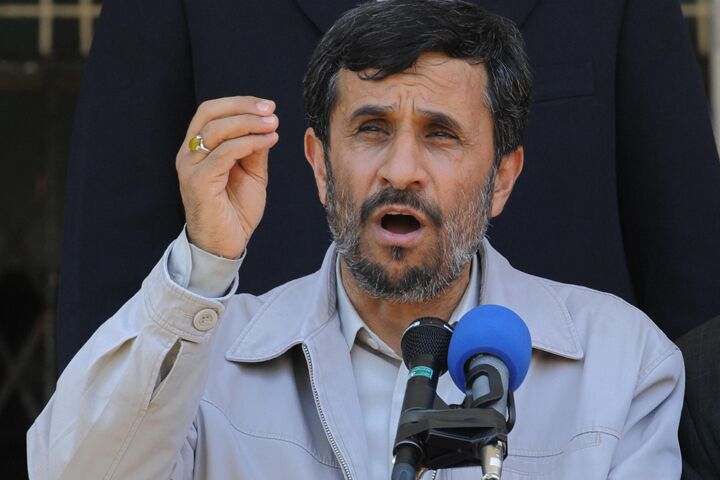
Iranian Hezbollah Leader Calls for ‘Islamic United States’
On May 15, the head of Hezbollah in Iran called for the creation of a “Greater Iran” that would extend from Israel to Afghanistan.
Ayatollah Mohammad Bagher Kharrazi said that the new Shia imperialism would accomplish two key goals: destruction of the nation of Israel, and bringing about the return of Islam’s long-awaited Mahdi, or Twelfth Imam, whose promised rule has been interrupted since his sudden disappearance in the ninth century.
“The Islamic United States will be an introduction to the formation of the global village of the oppressed and that will be a prelude to the single global rule of the Mahdi,” Kharrazi said.
Although Kharrazi does not currently hold much influence in Iran’s clerical hierarchy, these are not the words of some extreme political maverick. Kharrazi said the creation of this “Greater Iran” is the central aim of the Hezbollah, or the Party of God, movement that he leads. His comments reflect the ideologies of a growing number of Iranians, many of whom have become more reactionary because of international friction over Iran’s nuclear program.
Kharrazi’s tirade also attacked the “cancerous tumors” of Sunni Islam nations like Saudi Arabia. The amplifying voice of such hardliners as Kharrazi has caused concern in Sunni Arab nations, although they doubt such an extreme leader could win Iran’s 2013 presidential election.
Iranian President Mahmoud Ahmadinejad does not share in these doubts. On May 13, he said that the government which follows his will be “10 times more revolutionary.”
Kharrazi’s menacing words toss another log on the raging fire of evidence proving that the U.S.’s gradualist approach to Iran reflects shameful naivety in Washington.
It wasn’t long ago that Iranian officials declared the island state of Bahrain to be a province of Iran, a position still maintained by several members of the Khamenei-Ahmadinejad regime. The bellicose rhetoric of many Islamic leaders has only intensified since then. The Muslim Brotherhood defines its campaign in the U.S. as “a kind of grand jihad in eliminating and destroying Western civilization from within.” Osama bin Laden famously said, “The matter is summed up for every person alive: Either submit, or live under the suzerainty of Islam, or die.”
Although most Arab governments are aligned with the West, more and more of their people are falling under the sway of more reactionary leaders. Iran’s voice, which is consistently challenging Western power, has increasing influence over embittered Islamic peoples. The U.S. delivered an invaluable gift to Iran by invading Iraq and erasing the main obstacle in the way of Iranian dominance in the region: Saddam Hussein. In light of the millenarian religious views and vehement anti-Semitic ideology espoused by the Iranian government, there is reason for the West to be concerned. Hussein is gone, and the U.S. does not have the will to stop Iran’s flourishing regional clout.
More than 2,500 years ago, the Prophet Daniel wrote that a “Greater Iran” (which he called the “king of the south”) would indeed grow to dominance in the Middle East in our modern world, and that it would confront Western nations (Daniel 11:40-41). The Bible also accurately predicts the rift steadily emerging between Shiite and Sunni Muslims. To understand how to watch these pivotal events unfold through the lens of Bible prophecy, and how you can have hope in connection to these sobering events, read The King of the South.
